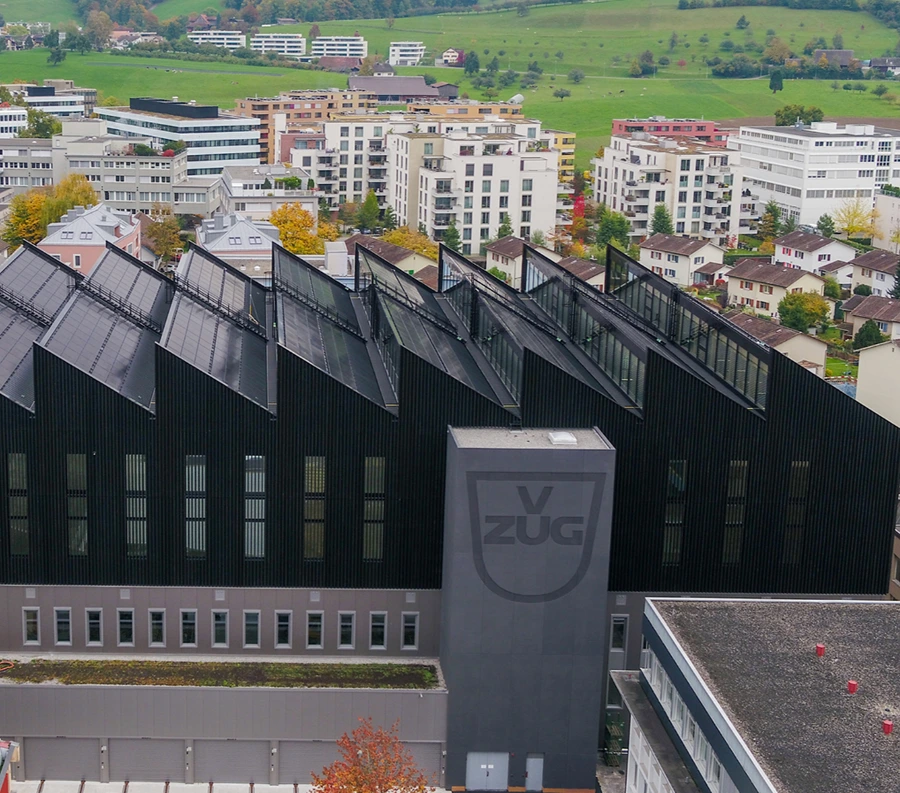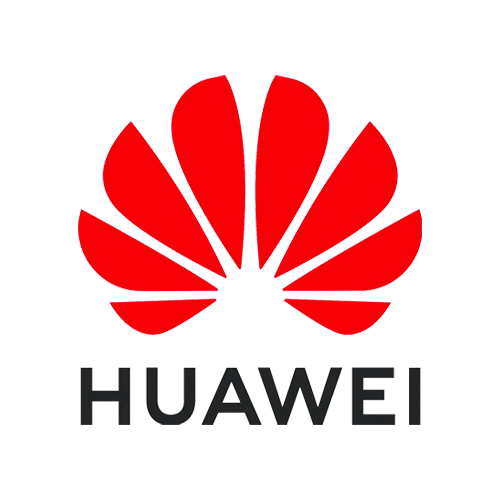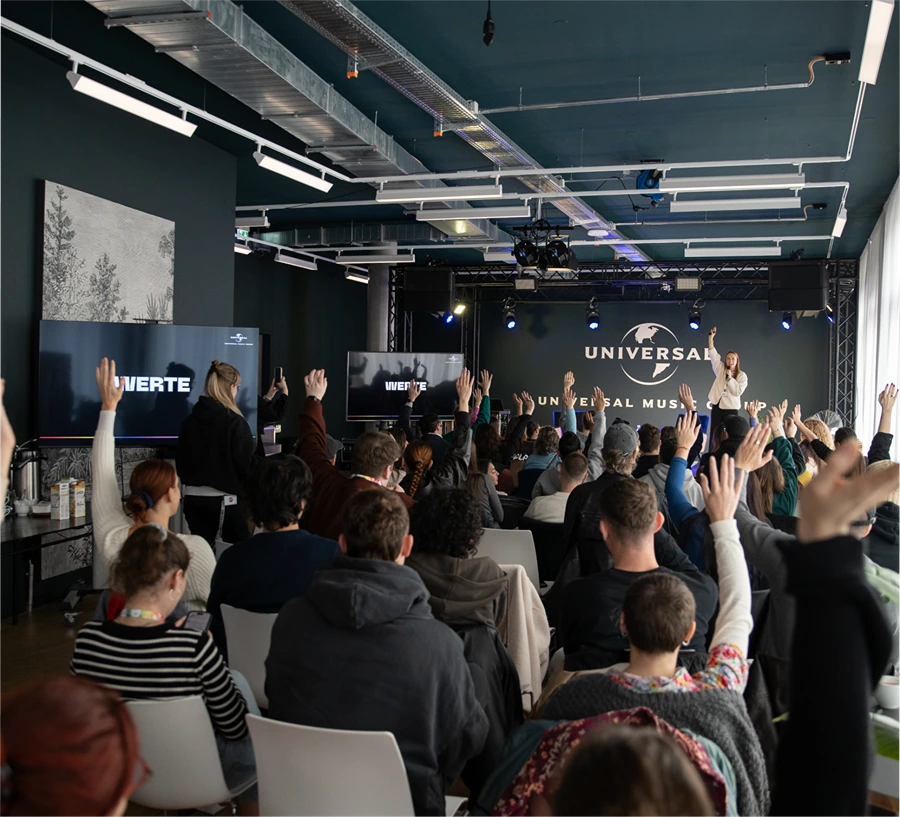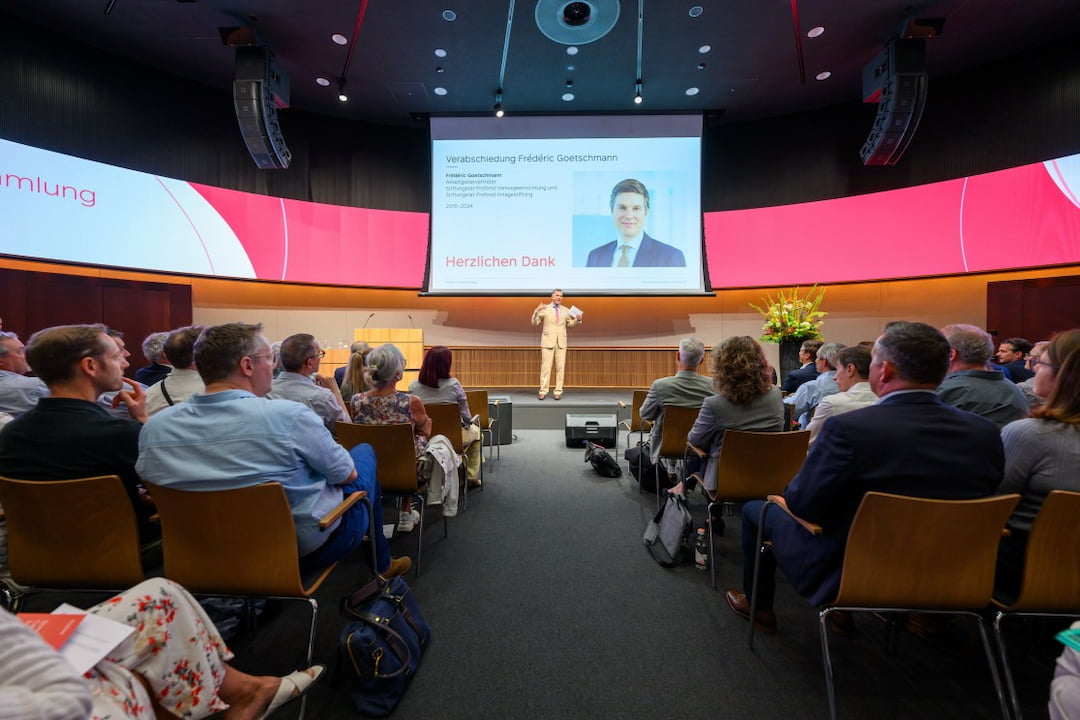Ext-gen B2B events — guidelines for more efficiency in event management
Organizers of B2B events are facing major challenges today. Participants expect perfectly organized events and decide carefully which events they attend based on the wide range of offers. At the same time, digitization offers new opportunities to increase ROI and improve the participant experience. Digital and hybrid formats, in which face-to-face events are combined with online components or implemented completely digitally, are becoming increasingly popular.
Efficiency and profitability remain the main goals of every B2B event. Costs must be reduced and revenue maximized to ensure financial success. Inefficiencies in organization, logistics, and communication can significantly impact ROI. Modern event management software and automation solutions help to overcome these challenges.
Digitalization in B2B event management
Technological progress has fundamentally changed the event industry. Cloud software handles registrations, ticket sales, and website creation without technical know-how. Artificial intelligence supports customer support and recommends personalized agendas. Virtual reality enables virtual tours, while the Internet of Things provides real-time data through smart devices such as wristbands. These technologies improve interaction, allow precise performance measurement and reduce costs through process automation.
Choosing the right event management software
Choosing suitable software is crucial for increasing efficiency. Key criteria include usability, feature set, integration, security, and customer support. Only required functions should be booked to avoid unnecessary costs. Data protection and data security must meet the highest standards, for example through ISO 27001 certification and GDPR compliance.
Enrollment automation
With event management platforms, registrations are easy to implement using drag-and-drop editors. Individual forms only collect necessary data and enable personalized communication. Automatic follow-ups keep participants informed, and hyperpersonalization recommends appropriate sessions. Automation saves time, prevents errors, and improves the experience for attendees and organizers.
Attendee tracking and management
Real-time tracking provides valuable insights into participant movements and interests. Tools such as QR codes, check-in apps and smart wristbands enable precise data analysis. Organizers can thus optimize visitor flows, avoid overcrowding and provide personalized recommendations. Data protection remains a central issue.
Automate feedback collection
Feedback is critical to improve future events. Online post-event surveys are standard. Automated reminders increase response rates. Modern software efficiently analyses answers and minimizes evaluation errors. Live feedback during the event is also possible, provided that it is evaluated directly.
Improving attendee experience
Digital tools such as chat functions and event apps increase interactivity. Participants can ask questions, network and receive important information such as room changes via push message. Personalized recommendations create an individual event experience that stands out from the competition.
Integrate event management tools
A central platform makes it possible to use data once collected for various purposes and reduces errors during manual transmission. Technical requirements such as API availability and data compatibility are decisive here. Systems should be tested for integration and security before use.
Data security and privacy
Organizers must comply with legal requirements such as GDPR and ISO 27001. These standards govern the safe handling of personal data and protection against cyber attacks. As soon as the first sensitive data is collected, the highest security requirements apply.
Performance measurement and optimization
KPIs such as number of participants, satisfaction, engagement rate and ROI are decisive for evaluating an event. The analysis of these key figures makes it possible to specifically improve future events and make them more economically sustainable.
Conclusion and outlook
The B2B event industry is changing through digitization and automation. Successful events rely on modern technologies to increase efficiency, reduce costs and maximize ROI. The right event management software, combined with strict data protection measures, is the key to success. Platforms such as evenito offer all the necessary functions to successfully implement next-gen B2B events.
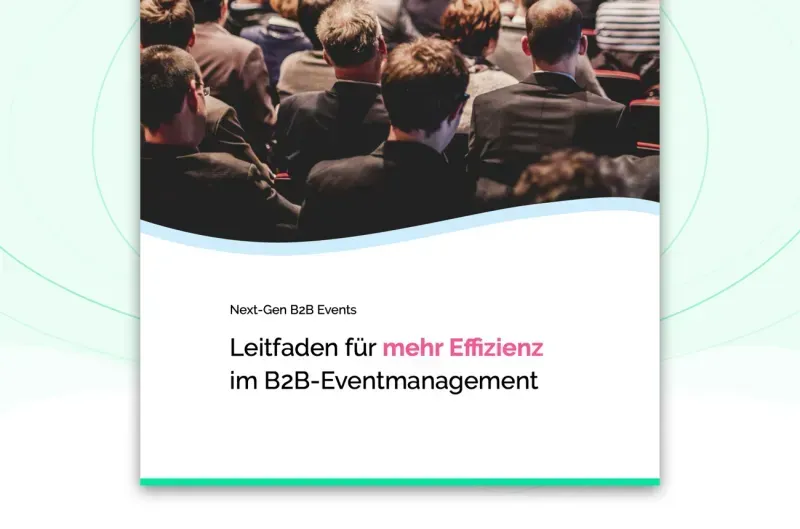
.svg)




.png)


.svg)
.svg)

.avif)








.webp)

.webp)





